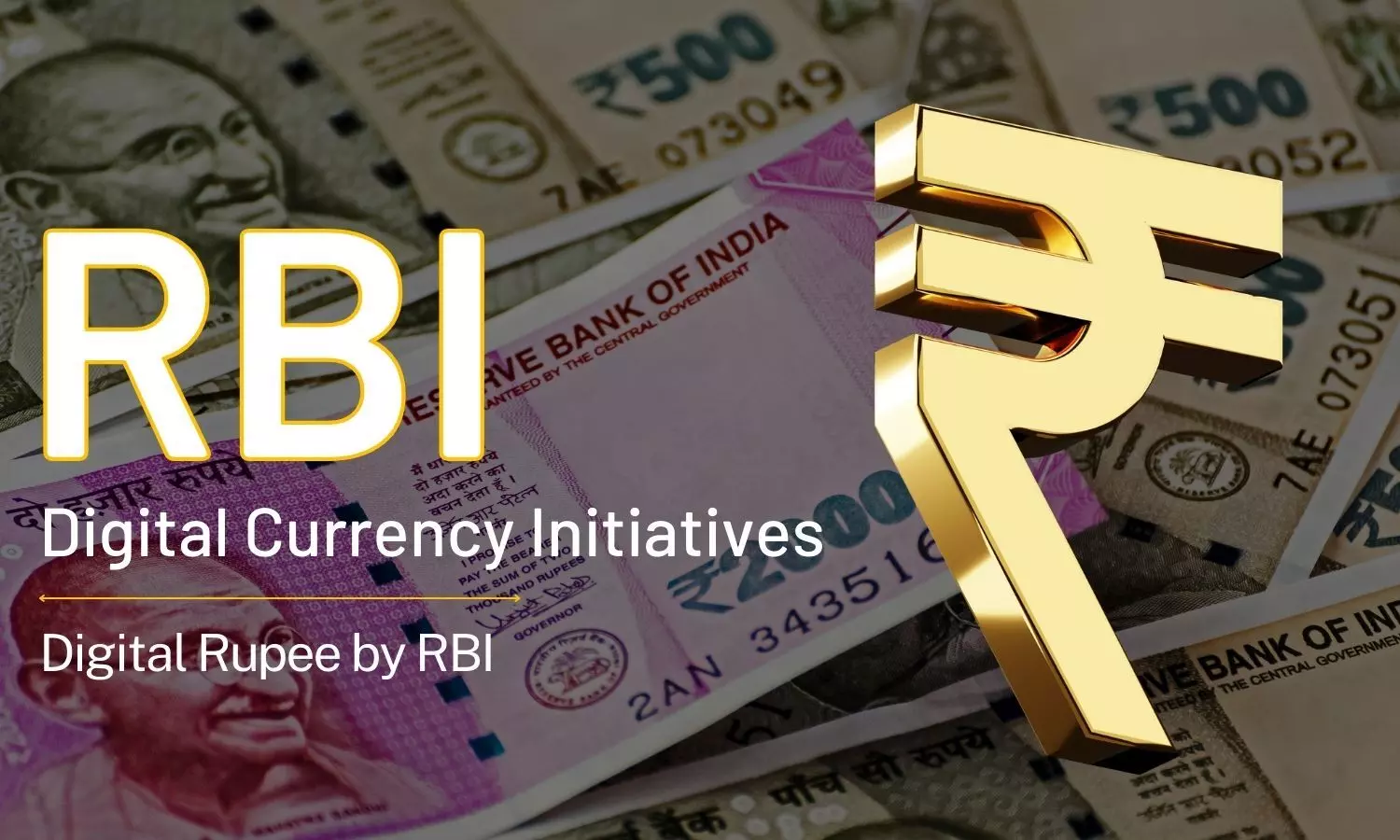RBI Digital Currency Initiatives: Digital Rupee by RBI
Discover RBI's digital currency initiatives, including the Digital Rupee and Central Bank Digital Currency (CBDC). Learn about RBI's innovative framework for blockchain, the future of digital payments in India, and how CBDC compares to cryptocurrency.
RBI Digital Currency Initiatives: Digital Rupee by RBI

Introduction
The RBI digital currency initiatives mark a transformative shift in India's financial landscape with the introduction of the Central Bank Digital Currency (CBDC) by the RBI. Known as the Digital Rupee by RBI, this initiative forms a key part of the RBI’s digital currency framework aimed at enhancing digital transactions and streamlining payments. By leveraging blockchain and RBI digital currency, the future of digital currency in India looks promising, offering a secure and efficient alternative to traditional methods. Unlike cryptocurrencies, CBDC is fully regulated, with the RBI's pilot projects on digital currency focusing on studying its economic impact. As part of the broader effort to boost digital payment systems by RBI, these initiatives signal RBI’s commitment to digital financial innovation.
Several prominent banks have been selected by the RBI to participate in this pilot project. The initiative aims to study and assess the CBDC's potential impact on the economy, explore associated risks and benefits, and identify effective methods for its implementation.
Why Does India Need a Cash Alternative?
India's push for a cash alternative through Central Bank Digital Currency (CBDC) brings multiple benefits to the table. One key advantage is that CBDC can be programmable, allowing funds to be created and circulated for specific purposes. This means money can be earmarked for particular contracts, individuals, or periods, reducing the risk of misuse or embezzlement. For example, government funds intended for welfare programs can be digitally tracked, ensuring they are used as intended.
Currently, cryptocurrency offers secure and real-time money transfers, but its lack of regulation makes most governments hesitant to endorse it. While CBDC is not a replacement for cryptocurrency, it provides a legal, secure alternative with similar benefits under the supervision of the Reserve Bank of India (RBI).
Moreover, today's digital payment platforms are largely controlled by private entities. A government-backed digital currency like CBDC can strengthen public trust in digital payments and encourage wider adoption across the country. Finally, physical currency comes with costs—printing, storing, and distributing money are expensive endeavours. By transitioning to digital currency, India can significantly reduce these costs, streamlining the money creation and distribution process.
How Digital Currency in India Will Impact Its Economy
1. Disrupting the Money Transfer Industry
Digital currency is poised to revolutionise domestic and international money transfers. Traditional transfers are subject to delays, such as batch processing, bank holidays, and weekends. In contrast, digital currency transactions will operate at high speed 24/7, with lower transaction costs compared to current methods. Once international currency compatibility is established, India's digital currency could disrupt the global money transfer service industry, offering seamless and cost-effective solutions.
2. Towards a Cashless Economy
While physical cash provides anonymity that many find appealing, it cannot be fully replaced overnight. However, with the increased financial inclusion facilitated by the e-rupee, India is expected to move closer to a cashless economy. Digital currency adoption will offer the convenience of cashless transactions, reducing the need for carrying and storing physical cash while enhancing security.
3. Enhancing Government Scheme Implementation
A significant benefit of Central Bank Digital Currency (CBDC) is its ability to improve the Direct Benefit Transfer (DBT) system for government schemes. CBDC can be programmed for specific uses and designated periods, ensuring that funds reach their intended recipients and purposes. For example, a digital currency payment under the Mahatma Gandhi National Rural Employment Guarantee Act (MGNREGA) will be usable only by the eligible beneficiary for specified needs. Similarly, grants for cooking gas (LPG) will be redeemable only at authorised agencies.
By enabling such targeted transfers, CBDC can significantly enhance the efficiency of government policies, ensuring the last-mile delivery of funds and benefits and reducing misuse. This would lead to more effective grassroots implementation of welfare schemes across the country.
Impact on and Benefits for Citizens
1. Faster and More Efficient Transactions
One key advantage of Central Bank Digital Currency (CBDC) for citizens is the ability to make quick and seamless money transfers. Transaction times will be faster, and settlement processes will be more efficient.
2. Lower Transaction Costs
Using CBDC is expected to reduce transaction costs, benefiting users by saving money on both domestic and international transfers. With CBDC-based remittances, international money transfers will be faster and significantly cheaper.
3. Round-the-Clock Availability
Unlike traditional banking systems that may experience downtime, CBDC will provide 24/7 availability for transfers and remittances. This round-the-clock accessibility will enhance the payment system's convenience and reliability.
4. Elimination of Physical Cash Hassles
By shifting to digital currency, citizens can avoid the burden of carrying and storing physical cash, along with the associated risks of theft, loss, and damaged notes. Digital currency offers a secure, efficient alternative.
Conclusion
As the digital rupee becomes integrated into India’s financial system, its impact is expected to ripple across the economy. The benefits of CBDC—such as reduced reliance on physical cash, faster transaction speeds, and greater digital efficiency—are anticipated to fuel positive changes. With successful implementation, CBDC will not only streamline financial transactions but also contribute to the country's overall economic growth.

